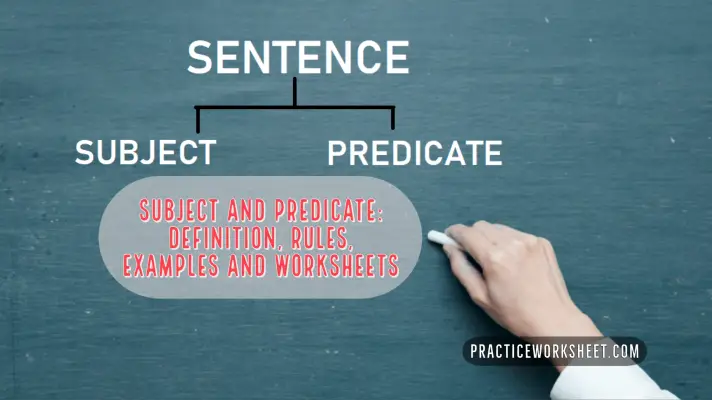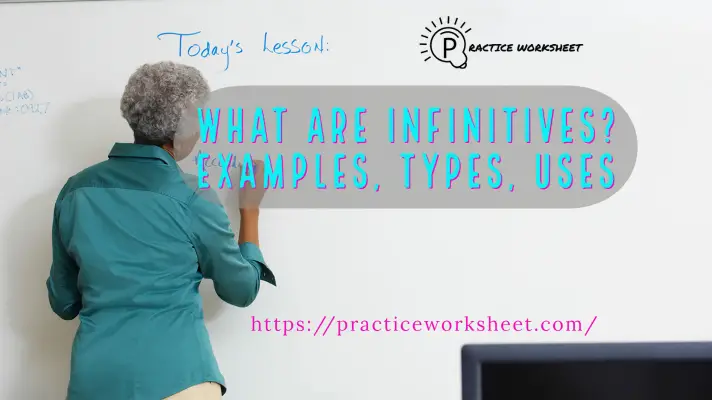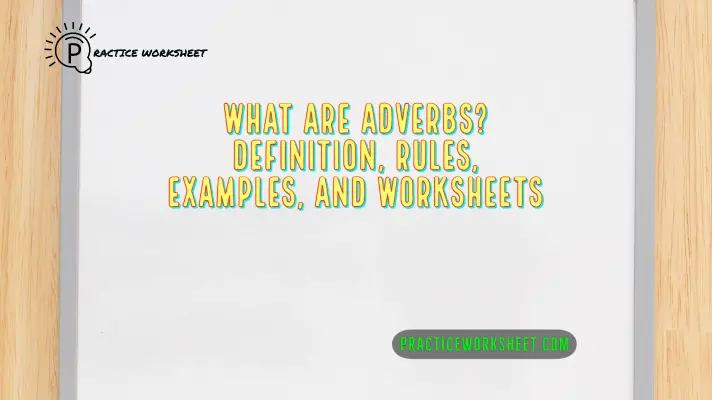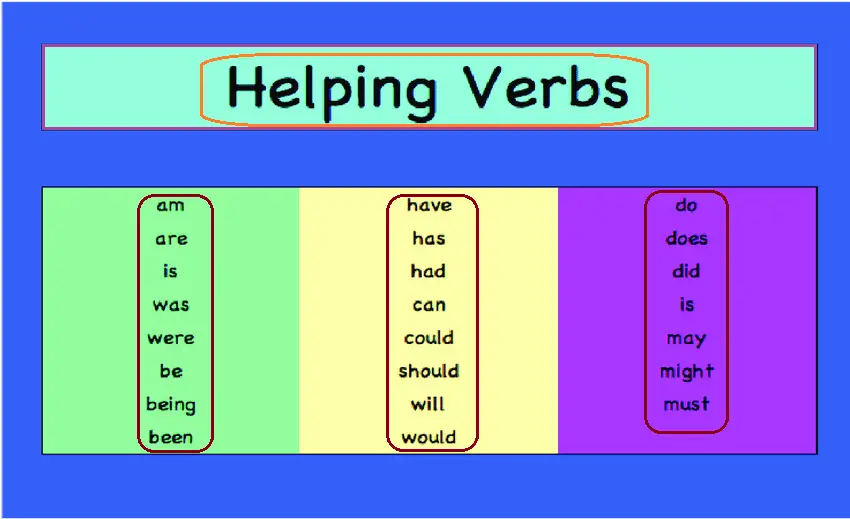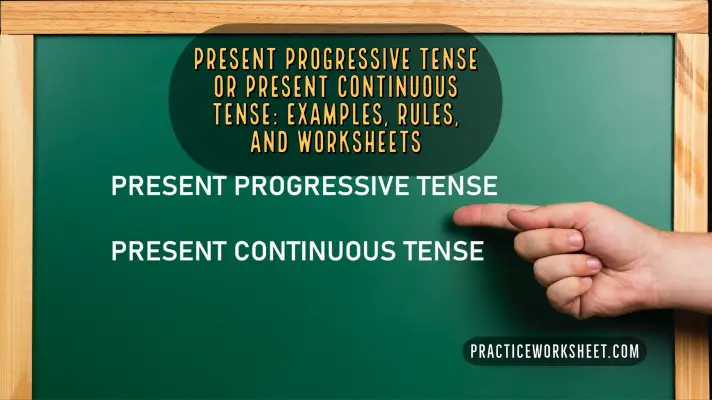Gerunds in English grammar are words generated from verbs by adding “ing” in the end and works as a noun in a sentence. A gerund can work as a subject, object, or predicate in a sentence. So, Basically,
Gerund (Noun)= (Verb) + (Suffix-ing)
For example, In the sentence “Reading is my passion”, the word “Reading” is a gerund that is formed by adding ing with the verb Read. The term Reading in the above sentence is working as a subject noun.
Note that, All verbs with ing at the end are not gerunds, To be a gerund it must have to be used as a noun. For example, in the sentence, “He is reading a book”, the word reading is a verb, not a gerund. So, a gerund is a noun consisting of a verb and a suffix -ing. It is also referred to as a verbal noun or -ing noun.
Note that, sometimes a gerund takes additional information like an object, adverb, or prepositional phrase and the entire group of words acts as a noun. This is known as a gerund phrase.
Features of a Gerund
- A gerund is a noun generated from a verb.
- As gerunds do not have the grammatical function of a verb, they are always non-finite.
- A gerund can function as a subject, adjective complement, or object in a sentence.
- Gerunds can stand alone or form a gerund phrase.
- Gerunds can be modified by an adverb (adverbs can’t modify nouns. However, in case of gerunds/gerund phrases, the verb is functioning as a noun. So the gerund itself can still be modified by an adverb in the same way as a normal verb. Example: “Studying too hastily will result in a poor grade.”)
Examples of Gerunds
Example of Gerunds as the subjects in a sentence:
Similar to a normal noun, a gerund or gerund phrase can be used as a subject of a sentence. For example:
- Reading is my favourite pastime. (gerund only)
- Eating green vegetables in good for health. (gerund+object)
- Studying too hastily can result in a poor grade. (gerund + adverb(s))
- Listening romantic songs proves to be dangerous among youngsters. (gerund + adjective + noun)
- Working from home saves the travelling time and costs associated. (gerund + prepositional phrase)
Gerund Examples as a subject complement:
Gerunds in a sentence can be used as subject complements where the gerund acts as a kind modifier giving additional information about the subject. Some of the examples include:
- My favorite thing about being in Mumbai is eating Vadapao. (eating complements thing)
- My main responsibility as a construction professional is operating the crane. (operating complements the noun responsibility)
- The best thing in life is spending time doing what we love.
Examples of Gerunds as objects of prepositions:
Gerunds can be used as the objects of prepositions for describing an action that modifies another action. This creates adverbial prepositional phrases which can be at the beginning, middle, or end of the sentence. For
example:
- After sneezing, I always get the hiccups.
- I’m planning to improve my health by running five kilometers daily.
- Mohor started going crazy from so much waiting in the long queue.
- She’s not against marrying him, she just isn’t ready yet.
Gerund examples as object of verbs/phrasal verbs:
Gerunds can sometimes function as the objects of verbs and phrasal verbs. For example:
- I really love playing for the team.
- I enjoy eating outside though my wife prefers cooking at home.
- They couldn’t help feeling sorry for Alice.
- Tanushri is looking forward to meeting Firan.
- When will Uttam give up drinking liquor?
- Sumita is counting on getting tickets for the newly released movie.
Examples of Gerunds to form compound nouns:
A gerund can be combined with regular nouns to form compound nouns. Some examples include:
- Jack’s new running shoes were stolen from the shoe-rack.
- Rahul’s hoping Sweta will give him a helping hand to finish the work.
- The working conditions of this city are very poor
Gerund examples as object complement:
Gerunds can also act as object complements for certain factitive verbs. For example:
- I can’t believe the boss caught Krishna napping.
- We came across Shyam lying in the pool.
- Priya saw the baby walking by herself.
Examples of Gerunds after prepositions:
When a verb comes after a preposition, using a gerund is the normal philosophy. Some examples are:
- Manasi is good at painting.
- There is no point in waiting for Ismat.
- In spite of missing the bus, they reached on time.
Gerund examples after some expressions
The gerund is required after some of the expressions like “can’t help”, “can’t stand”, “to be worth”, “it’s no use”, etc. Examples include:
- It’s no use trying to escape the long queue.
- It is worth mentioning his name in the list.
- Mohor couldn’t help falling in love with Firan.
Gerunds Worksheets and Exercises
I Hope, by now you have learned and understood the above examples of gerunds. Now is the time to solve the following Gerund worksheets.
Q1. Read the following sentences and underline the gerunds.
- Walking is a good exercise.
- When do you give up smoking?
- Excessive swimming can cause cramps in legs.
- Anoop enjoys jogging eight kilometers daily.
- Coding is Aharsi’s favourite activity.
- You can easily recommend listening to that song.
- Thank you for bearing with me.
- Walking long distances is not a problem for Manasi.
Q2. Use the given verbs and fill in the the spaces provided with correct gerund form.
Verbs: (Call/Cook/Jump/Work/Skate/Solve/Go/Be)
- Swarnali is capable of ( ) the problem herself.
- Ismat is proud of ( ).
- Firan is fond of ( ) for his site.
- Don’t be afraid of ( ) from so lower levels.
- Uttam likes the idea of ( ) outside during the pandemic period.
- Rubel is responsible for ( ) for Sumita.
- Ram objected to ( ) Rahim.
- Ravleen said sorry for ( ) late.
